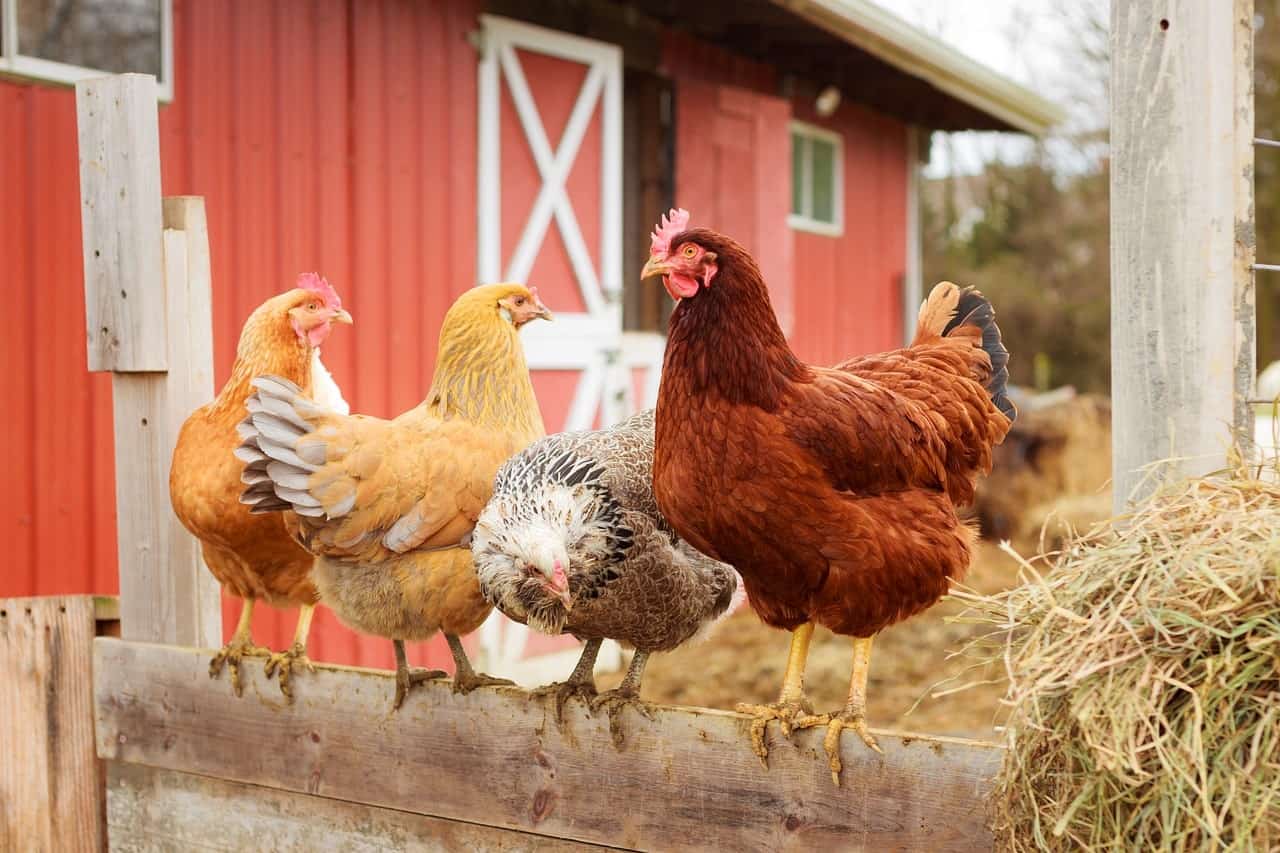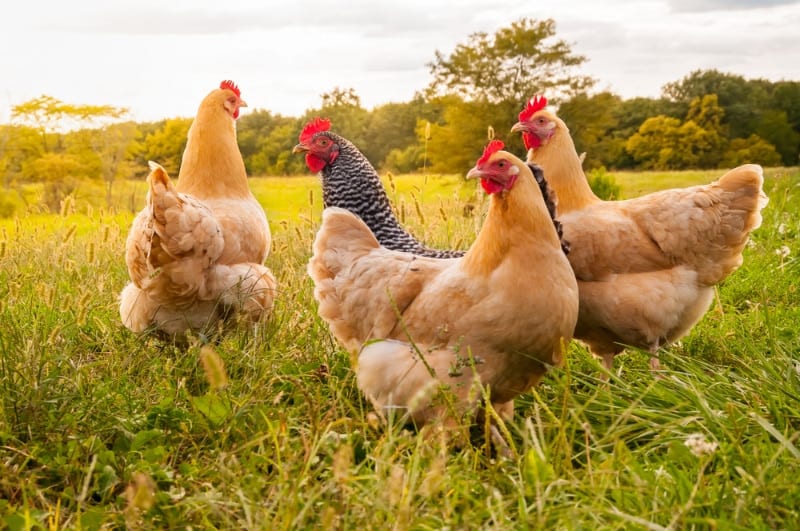Approved by Dr. Luqman Javed
Raising chickens can be a fun challenge for people who want to give homestead life a try. Chickens are easier to handle than larger livestock like goats or pigs. They can also be raised for egg production, meat, or even as feathery pets. Even though chickens are not large birds, they still need space to move around. But how much space does a chicken need to be happy?
If your regular-sized chickens have access to space to run around outdoors, aim to have at least 3–5 square feet of indoor space per mature chicken. The roaming outdoor space for your chickens should be at least 10 square feet of space per mature chicken. Other factors contribute to your chickens’ health and comfort, but space—both indoor and outdoor—should be high on the list.

Why Do Chickens Need Space?
When people think about chickens, the amount of space they have to move around comfortably usually does not come to mind. People who do not know much about raising chickens might think that the other four-legged farm animals are more deserving of space. However, a lack of space can harm chickens.
If you own several chickens in a small area that does not allow them to move around freely, they can become overly aggressive. This aggression can lead to pecking at each other or pulling out feathers. Even if you have a single chicken, they can become stressed being in too small a place. This stress can also lead to the chickens producing fewer eggs. Giving your chickens space to move around both indoors and outdoors is essential for their physical health and mental well-being.

Does the Size of the Chicken Affect the Amount of Space They Need?
The size of the chicken does affect the amount of indoor space they need. Smaller breeds of chickens, such as the Silkie breed, require a minimum of 2–3 square feet of space per chicken. Medium-sized breeds like the Leghorn will need at least 3–4 square feet of space per chicken. Aim to have 4–5 square feet of space per chicken for the larger breeds, like the Jersey Giant.
If you’ve adopted chicks, consider ½ square foot per chick when they are under 4 weeks of age. When they’re around 4 weeks old, consider upgrading to about ¾ square feet of space per juvenile.
The amount of outdoor space will remain the same for all sizes of mature chickens: 10 square feet per chicken. If you are not able to provide your chicken with outdoor space, then your indoor space must be larger than the minimum requirement to ensure your chickens get the exercise and space they need to be healthy.
| Number of Mature Chickens | Minimum Indoor Space per Chicken Based on Breed Size | Minimum Outdoor Space per Chicken |
| 1 chicken | Small: 2-3 square feet Medium: 3-4 square feet Large: 4-5 square feet | 10 square feet |
| 5 chickens | Small: 10-15 square feet Medium: 15-20 square feet Large: 20-25 square feet | 10 square feet |
| 10 chickens | Small: 20-30 square feet Medium: 30-40 square feet Large: 40-50 square feet | 10 square feet |
Generally speaking, you cannot go wrong with more space for chickens, as long as they have a safe coop to rest in and a well secured, predator-proof outdoor area to roam about and forage in.
- Related Read: 10 Best Chicken Coops – Reviews & Top Picks
What Else Do Chickens Need To Be Healthy?
In addition to a minimum of 3–5 square feet of indoor space and at least 10 square feet of outdoor space per chicken, they need other things for their health. Chickens need a place to roost at night. Roosting bars need to provide about 8–12 inches of space per chicken so they do not get crowded.
Nesting boxes are also necessary for your chickens. Usually, three to four chickens can sleep in a single nesting box (provided it is large enough). If you own chickens in an area that gets cold during the winter, you might notice they huddle especially close at night. This is considered normal flock behavior. If you live in exceptionally cold places, consider getting a thermal roosting perch for your chickens as well. Custom heaters exist for nest boxes too but must be installed properly.

Final Thoughts
When planning out both indoor and outdoor spaces to house your chickens, having more space than less is the best decision for your feathered friends. Inadequate space can lead to aggression and stress among your chickens, while more space gives them plenty of room to exercise and relax on their own. The correct setup and coop will go a long way in ensuring that your chickens stay healthy and stress-free.
Featured Image Credit: Moonborne, Shutterstock
